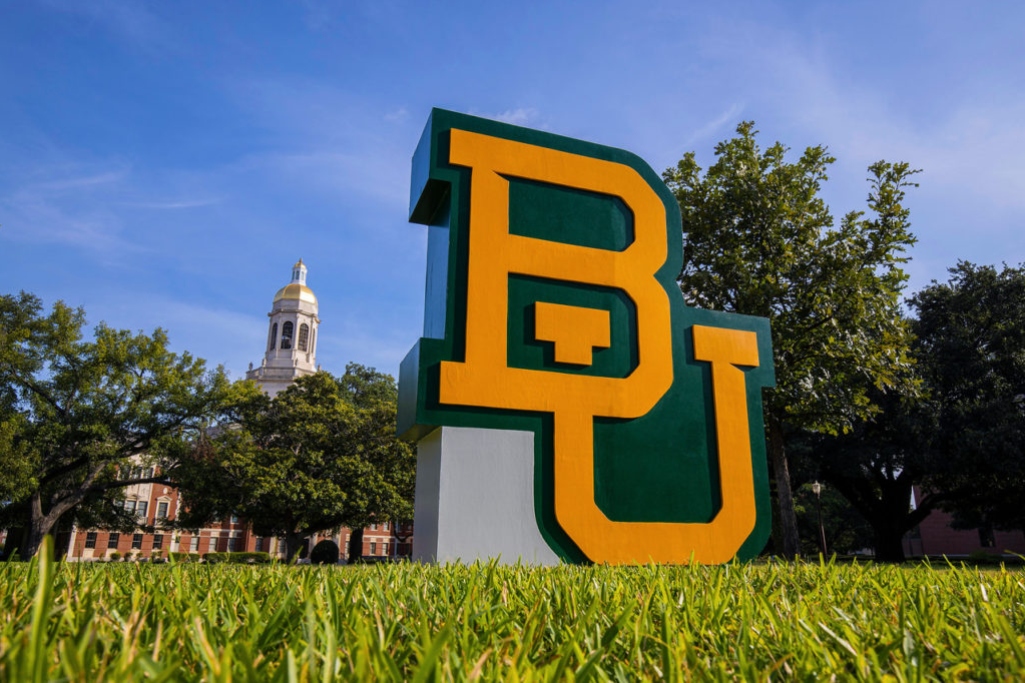
WACO, Texas (BP) – The U.S. Department of Education confirmed Baylor University’s religious exemption from a narrow range of Title IX provisions, particularly regarding LGBTQ students.
However, in an Aug. 14 letter to students, faculty and staff, Baylor President Linda Livingstone emphasized the confirmation of the university’s religious exemption does not signal any change regarding Baylor’s policies regarding sexual harassment.
Livingstone stressed the university expects “all members of the Baylor Family” – including LGBTQ students – “to be treated with respect and dignity.”
Complaints prompted request for confirmation
The exemption clarification was granted in response to a request Livingstone sent May 1 to Catherine E. Lhamon, assistant secretary for civil rights at the U.S. Department of Education.
The May 1 letter requesting confirmation of the religious exemption was prompted by several complaints filed with the Department of Education’s Office of Civil Rights in 2021.
The specific complaints focused on the disposition of a charter request by the Gamma Alpha Upsilon LGBTQ student organization, claims of sexual harassment based on sexual orientation or gender identity, and alleged pressure placed on university media to not report on LGBTQ events and protests.
In the May 1 letter, Livingstone noted the Department of Education acknowledged Baylor’s religious exemption in 1985, in response to a 1976 request from the university.
She pointed to Baylor’s affiliation with the Baptist General Convention of Texas and associate membership in the Baptist World Alliance, and she stated the university is governed by a “predominantly Baptist” board of regents.
She identified Baylor as “a place where the Lordship of Jesus Christ is embraced, studied and celebrated,” and she stated Baylor operates “within Christian-oriented aims and ideals of Baptists,” including those in the 1963 Baptist Faith and Message statement of faith.
“As a religiously controlled institution of higher education, the University prescribes standards of personal conduct that are consistent with its mission and values,” Livingstone wrote in the May 1 letter.
She stated Baylor “practices nondiscrimination in employment, administration of its educational policies, admissions policies, scholarships, loan programs, and athletic and other school administered programs.”
At the same time, she asked the Department of Education to confirm that Baylor is “exempt from any Title IX requirements that are inconsistent with its religious tenets.”
“The University does not discriminate on the basis of sexual orientation or gender identity or expression per se, but it does regulate conduct that is inconsistent with the religious values and beliefs that are integral to its Christian faith and mission,” Livingstone wrote.
Quoting from Baylor’s Sexual Conduct Policy and its Statement on Human Sexuality, she wrote: “Since Baylor ‘affirms the biblical understanding of sexuality as a gift from God’ and requires ‘purity in singleness and fidelity in marriage between a man and a woman as the biblical norm,’ any asserted Title IX requirement that Baylor must allow sexual behavior outside of marital union between a man and a woman, or that contradicts the Baptist doctrine of marriage and the created distinction between men and women, is inconsistent with Baylor’s religious tenets, and the University is exempt from such requirement.”
Exempt for provisions inconsistent with religious tenets
In a July 25 letter from the DOE to Livingstone, Lhamon restated Baylor’s rationale for its religious exemption and its requested assurance of its exemption from certain Title IX “regulatory provisions.”
“The University is exempt from these provisions to the extent that they are inconsistent with the University’s religious tenets,” Lhamon wrote.
She continued: “Please note that this letter should not be construed to grant exemption from the requirements of Title IX and the regulations other than as stated above.”
If the Office of Civil Rights receives any complaint, it will be “obligated to determine initially whether the allegations fall within the exemption here recognized,” she stated.
Once the correspondence between Baylor and the Department of Education was made public, the Religious Exemption Accountability Project – which had filed a complaint on behalf of an LGBTQ student who graduated from Baylor in May – issued a public response condemning the decision.
“This unprecedented move makes Baylor unsafe for LGBTQIA+ students and is truly shocking,” said Paul Carlos Southwick, director of REAP. “Any reasonable person can see that this coddling of religious extremists has gone too far.”
‘Narrow yet complicated legal matter’
In her Aug. 14 letter to the Baylor community, Livingstone took issue with “reports and comments within traditional and social media” that she believes mischaracterized the Department of Education action.
“This is a narrow, yet complicated legal matter that has implications for all religious-based universities, not just Baylor,” she wrote. “Accordingly, we are responding to current considerations by the DOE to move to an expanded definition of sexual harassment, which could infringe on Baylor’s rights under the U.S. Constitution, as well as Title IX to conduct our affairs in a manner consistent with our religious beliefs.”
However, she stated, the confirmation of Baylor’s religious exemption from the DOE “has been characterized publicly by some as an indication that Baylor will not stop or modify how we provide Title IX or other protections to students, including those who identify as LGBTQ.”
“This is completely untrue,” she emphasized. “There will be NO CHANGES to Baylor’s current practices or policies related to sexual harassment or other forms of sexual and interpersonal conduct resulting from this assertion of our existing religious exemption.”
Livingstone stated the university’s Office of Equity, Civil Rights and Title IX “will continue to investigate sexual harassment allegations or related complaints and investigate these thoroughly and fairly.”
“We have taken and will continue to take meaningful steps to ensure all students – including members of the LGBTQ community – are loved, cared for and protected as a part of the Baylor Family,” she wrote.
“This institution is fully committed to promoting and maintaining an educational environment in which all students – including those who identify as LGBTQ – can learn and grow in accordance with our Christian mission and our call to love our neighbors as ourselves within a caring community.”
This article originally appeared in the Baptist Standard.
(EDITOR’S NOTE – Ken Camp is the managing editor of Baptist Standard.)


